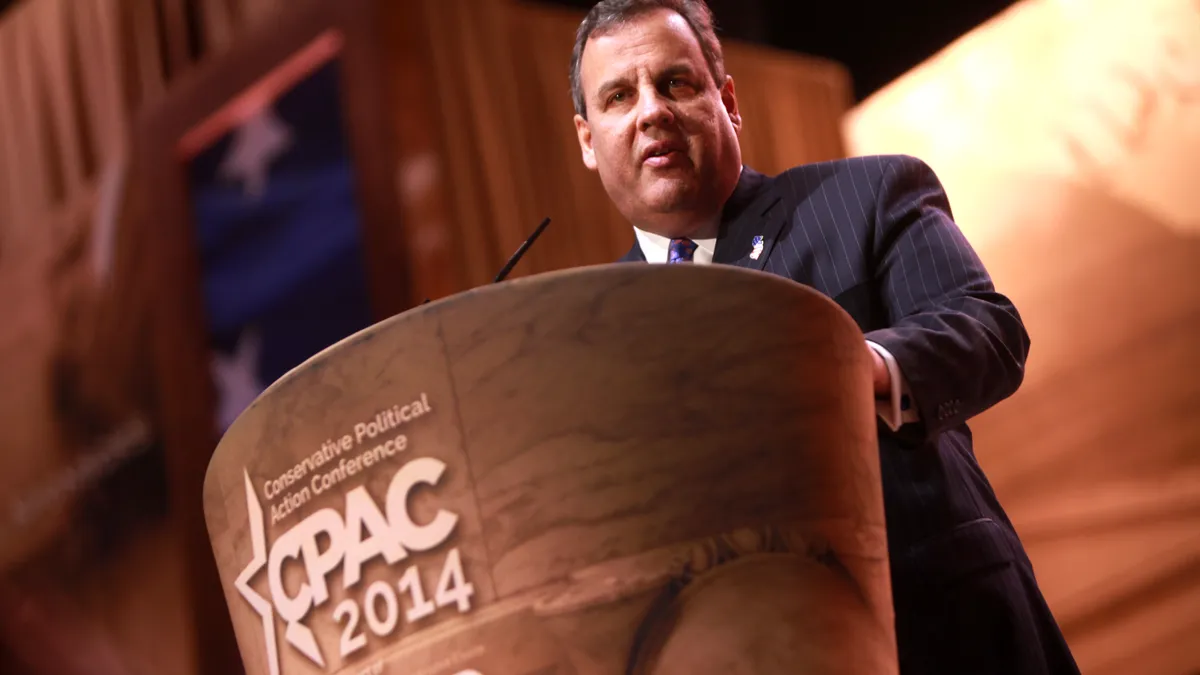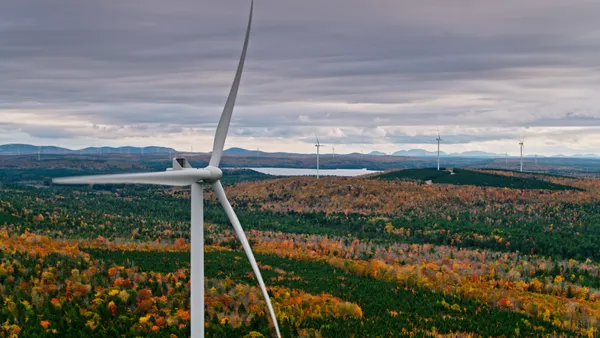Dive Brief:
- New Jersey is challenging the Obama administration's Clean Power Plan and has asked the U.S. Environmental Protection Agency for an administrative stay of the rule.
- New Jersey Gov. Chris Christie said the federal government was overstepping its authority and disproportionately placing an unfair burden on states that have already significantly reduced carbon emissions.
- New Jersey has the fifth lowest carbon emission rate in the nation, and more than half of its electricity comes from carbon-free nuclear sources.
Dive Insight:
Republican governor and presidential hopeful Chris Christie's administration has requested the EPA stay the Clean Power Plan, slamming the Obama administration and calling the rule an overstep of federal authority that threatens New Jersey's ability to make decisions about its future.
“The Clean Power Plan is yet another example of the Obama Administration inappropriately reaching far beyond its legal authority to implement more onerous and more burdensome regulations on businesses and state governments alike,” Christie said in a statement. “This is a fundamentally flawed plan that threatens the progress we’ve already made in developing clean and renewable energy in New Jersey without the heavy-handed overreach of Washington.”
The state has sent a letter from Department of Environmental Protection Commissioner Bob Martin to the EPA, requesting the stay. According to the letter, the plan contains “vague, ambiguous, uncertain provisions that remain unsolved," and it will "burden the citizens of our state with unjustifiable increases in electricity costs while also complicating New Jersey’s efforts to make further reductions in carbon emissions.”
One of New Jersey's chief complaints is that the new regulations, which were finalized last month and target a 32% nationwide reduction in greenhouse gas emissions, do not take into account work the state has already done.
According to data from the U.S. Energy Information Administration, New Jersey has the fifth lowest carbon emission rate. According to Christie, the state has already spent years replacing coal with natural gas, renewable energy and efficiency, and gets 52% of its power from nuclear energy.
With the regulations now final, states are beginning to assess their strategies. Some are choosing to challenge the plan in court and a few have indicated they will not be filing strategies. Republican-led Michigan this week decided it would develop a plan to comply with the CPP, opting to develop its own plans for the state rather have the federal government step in.















